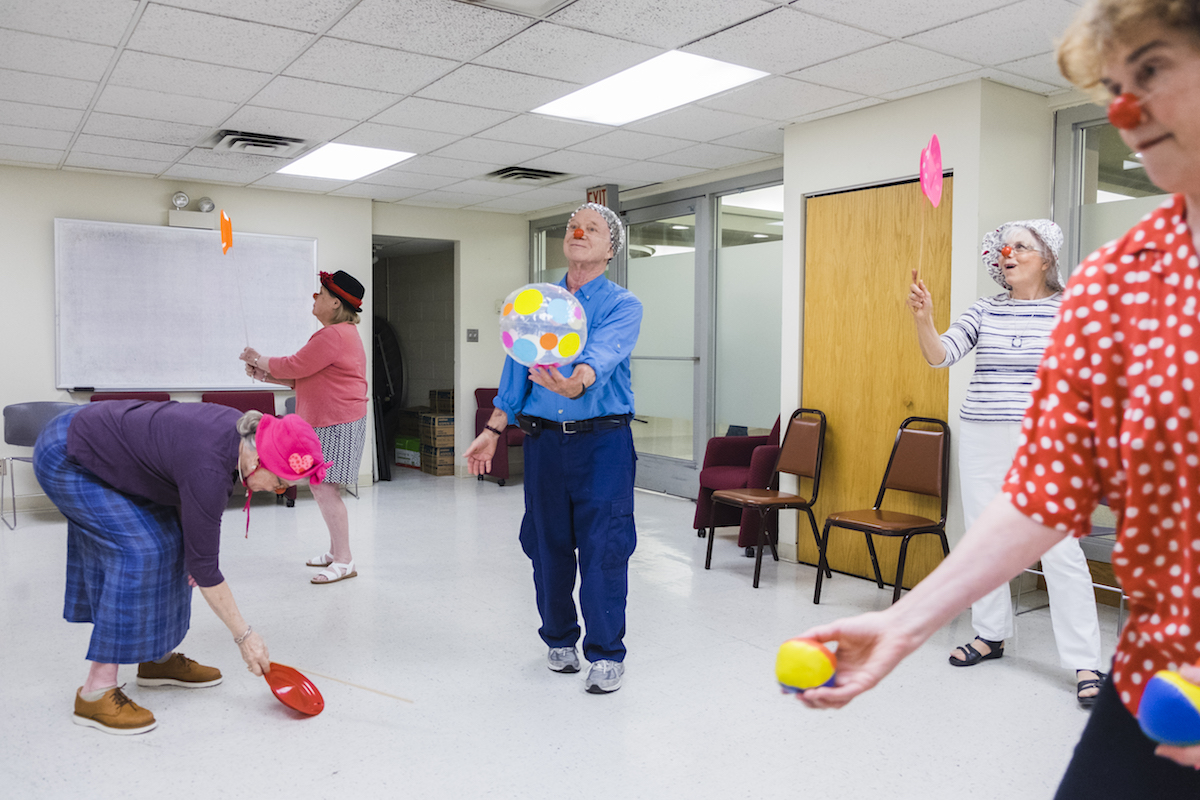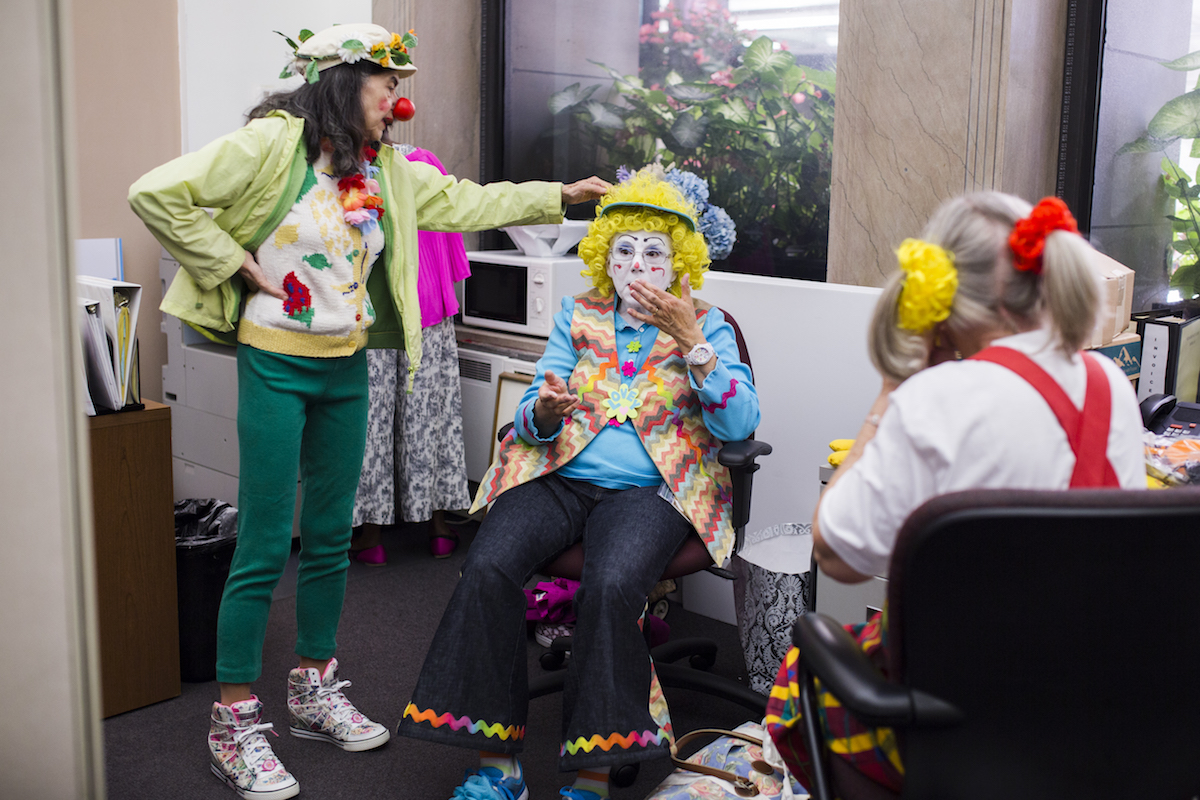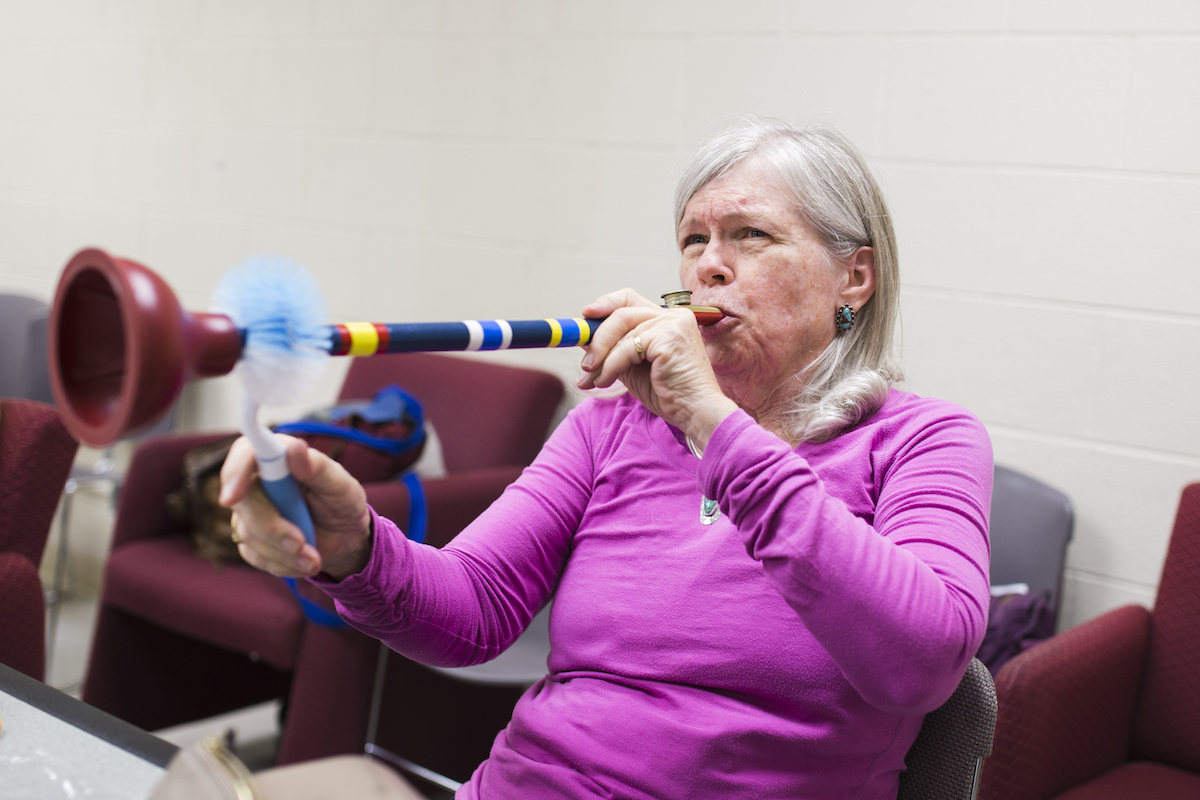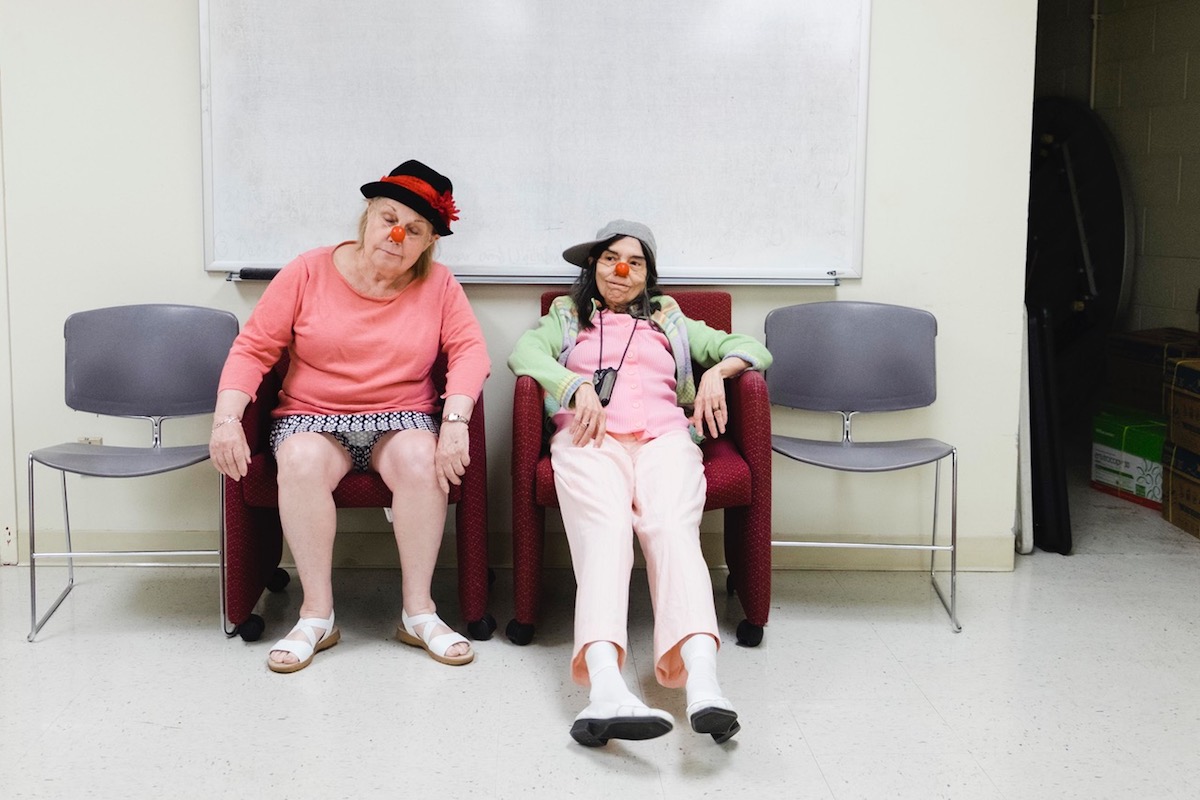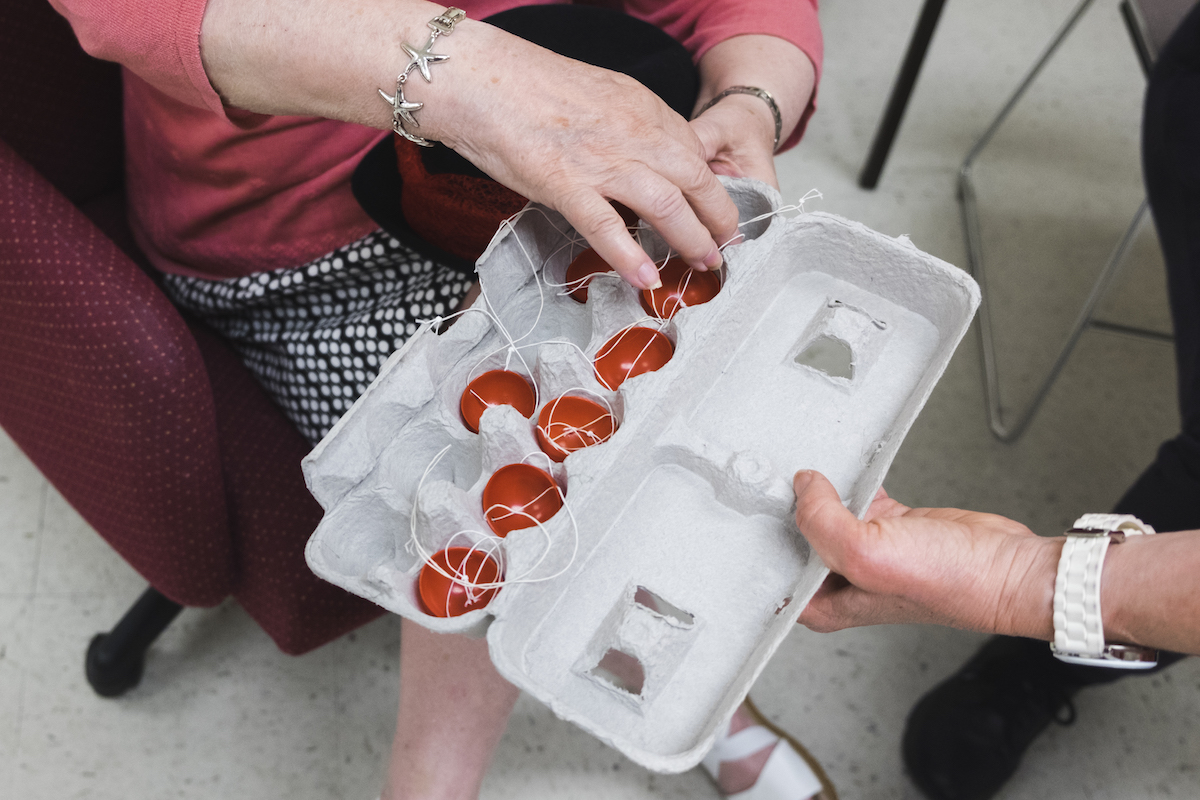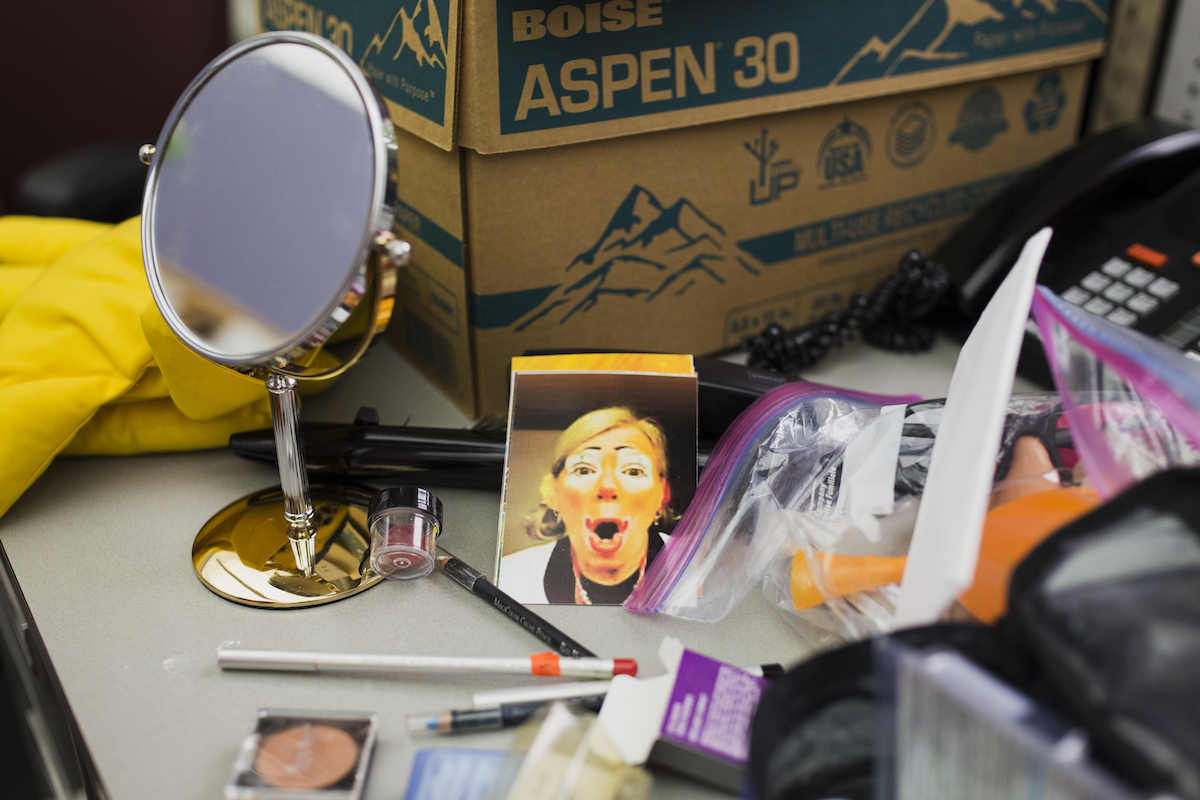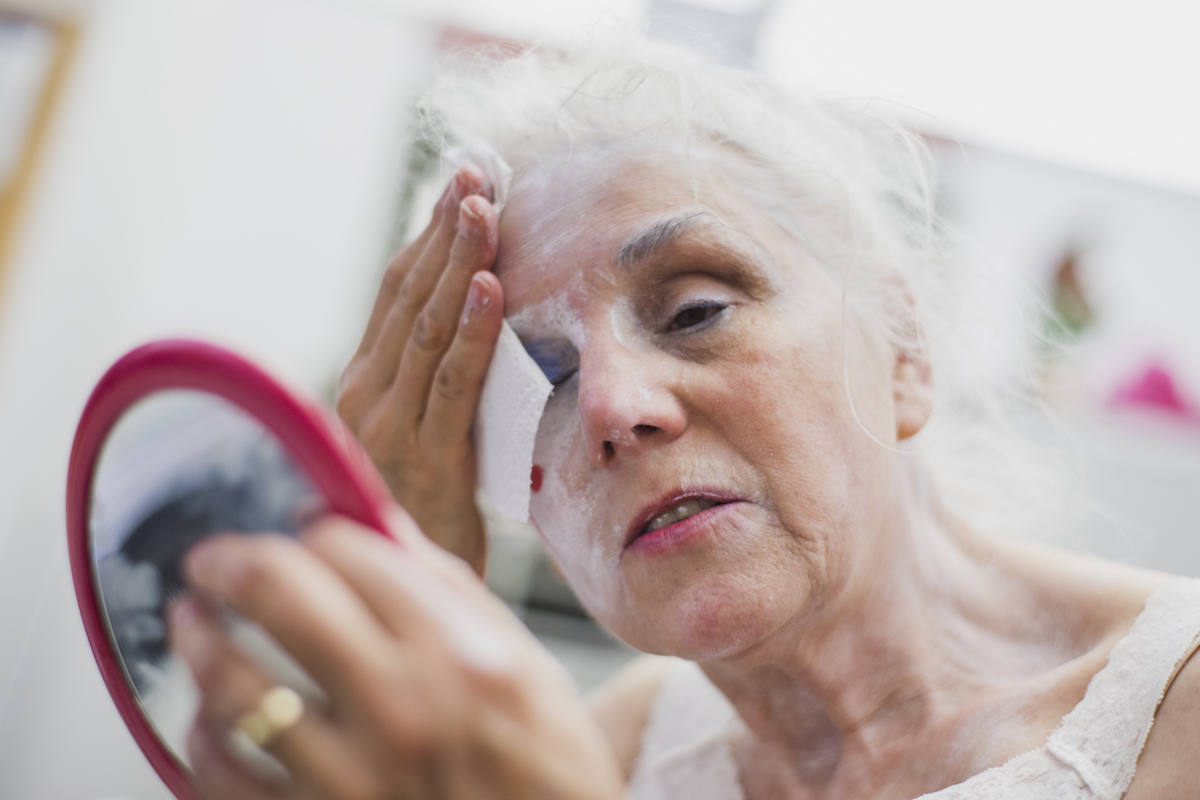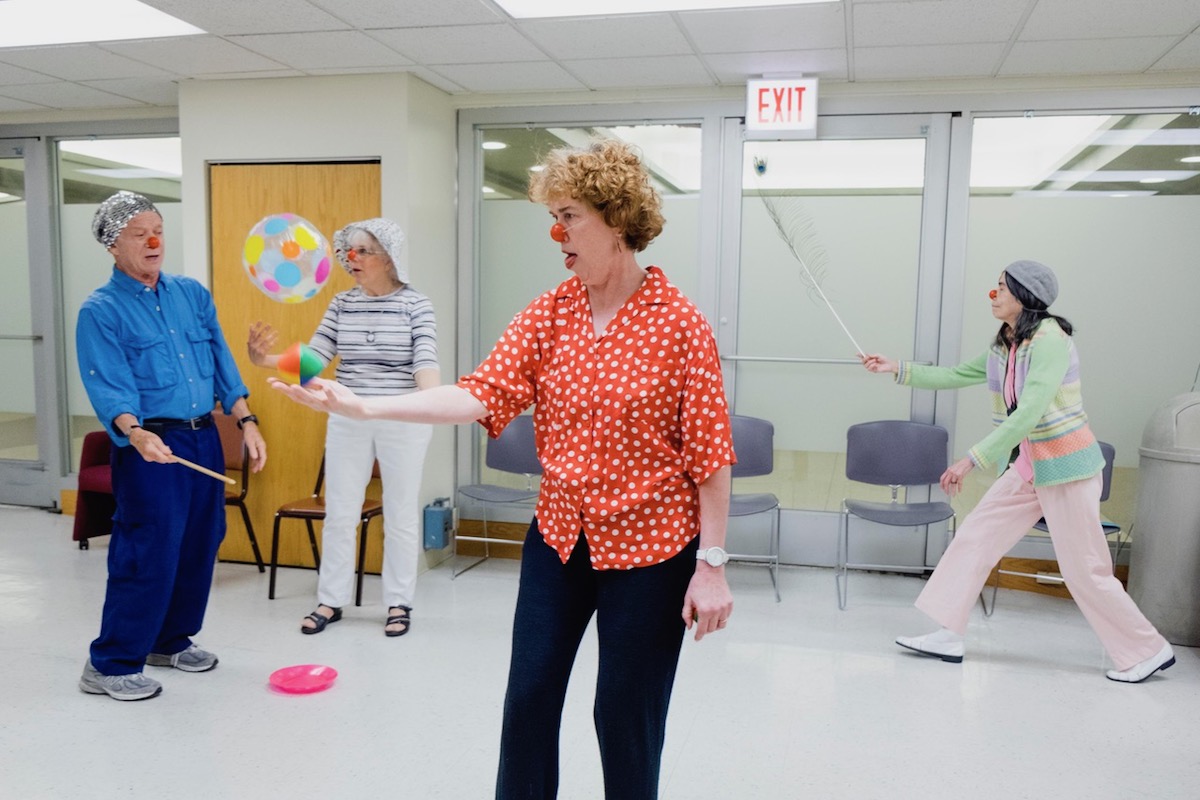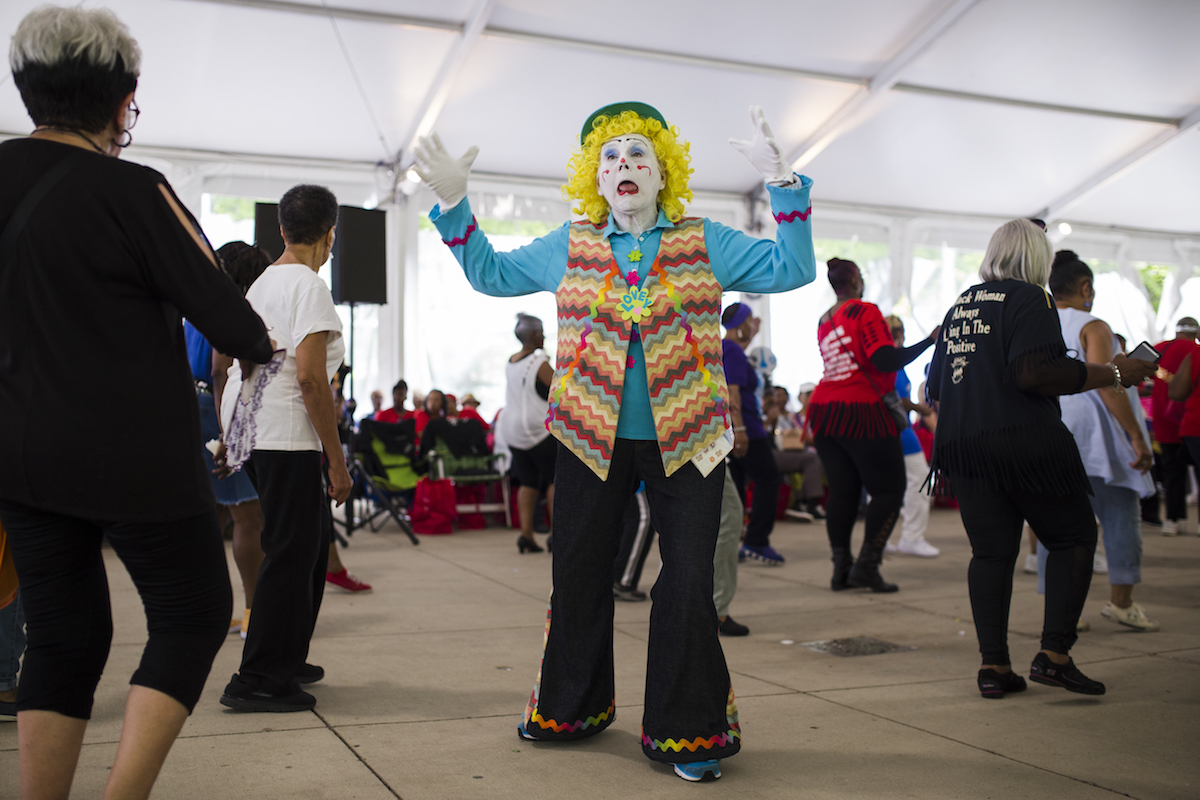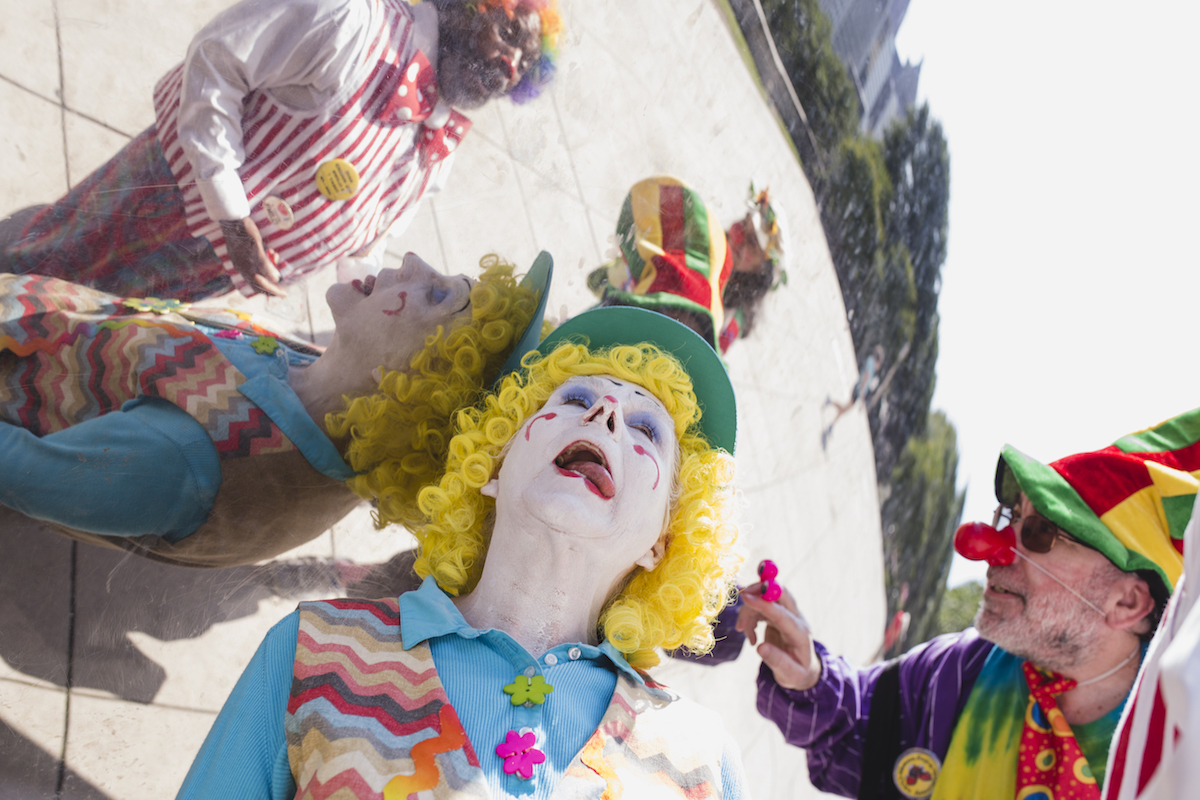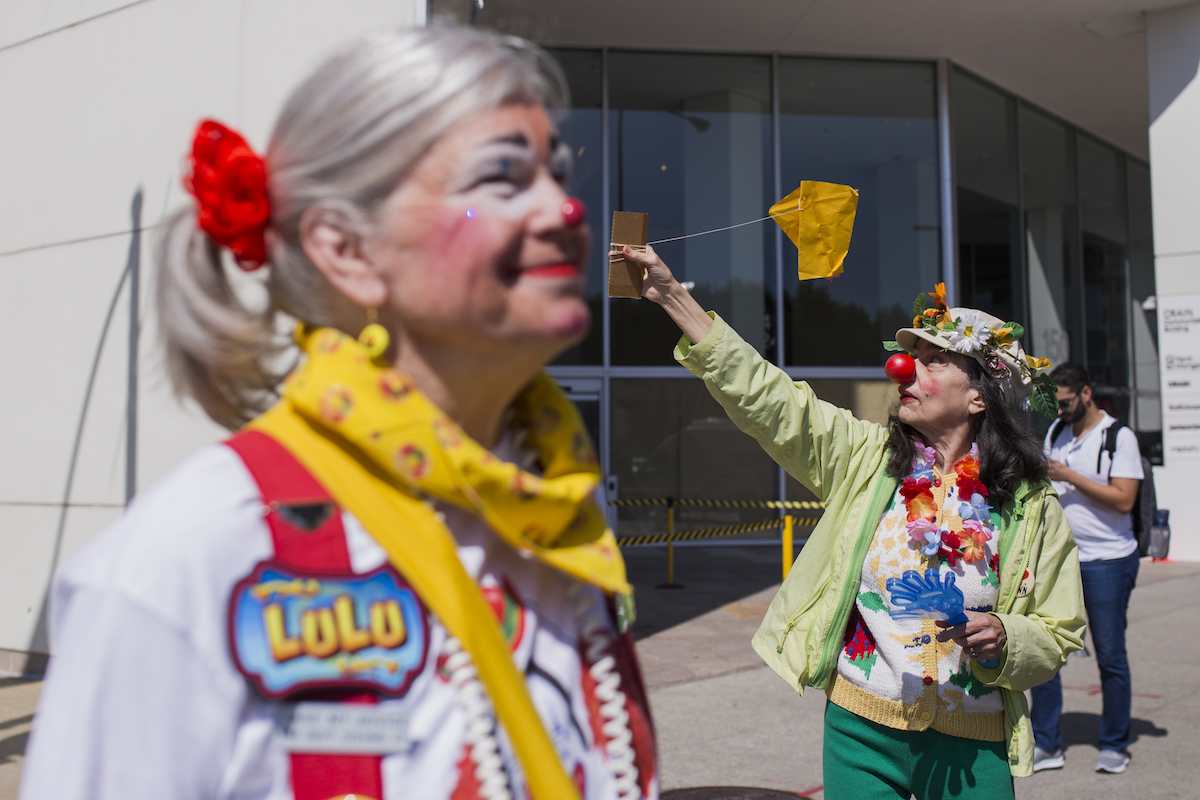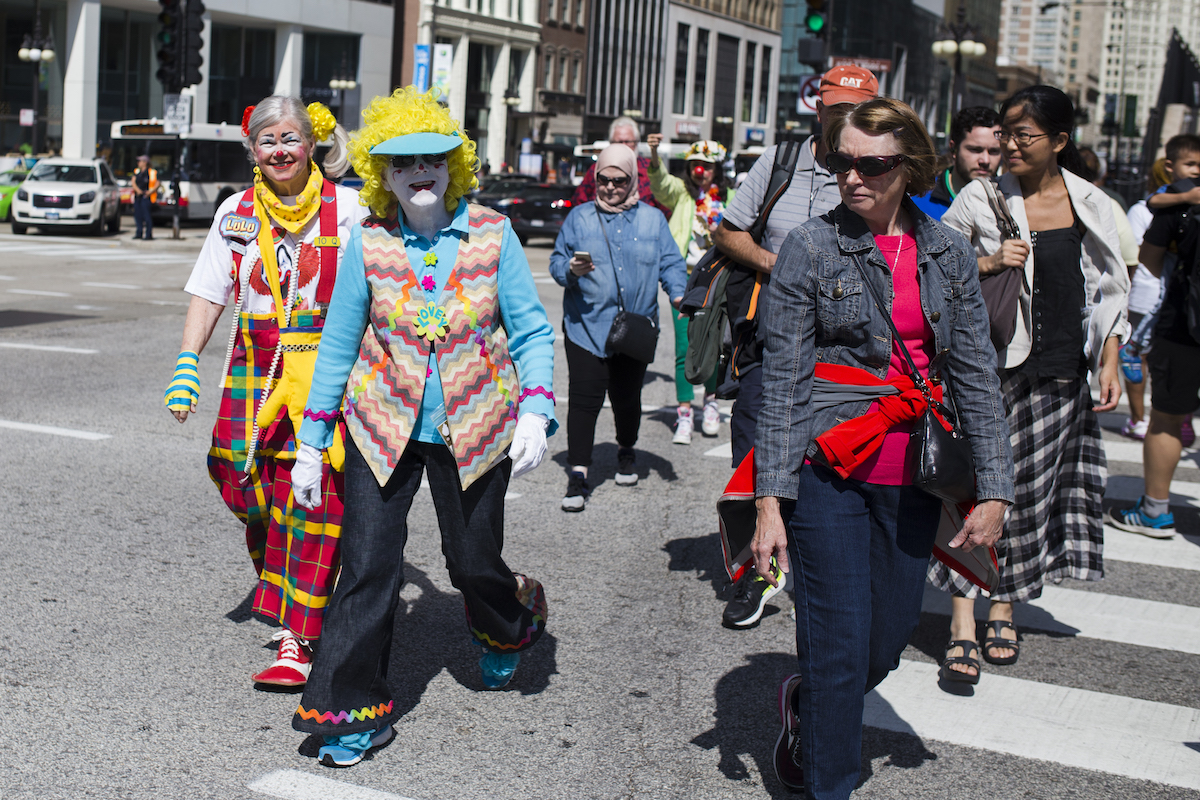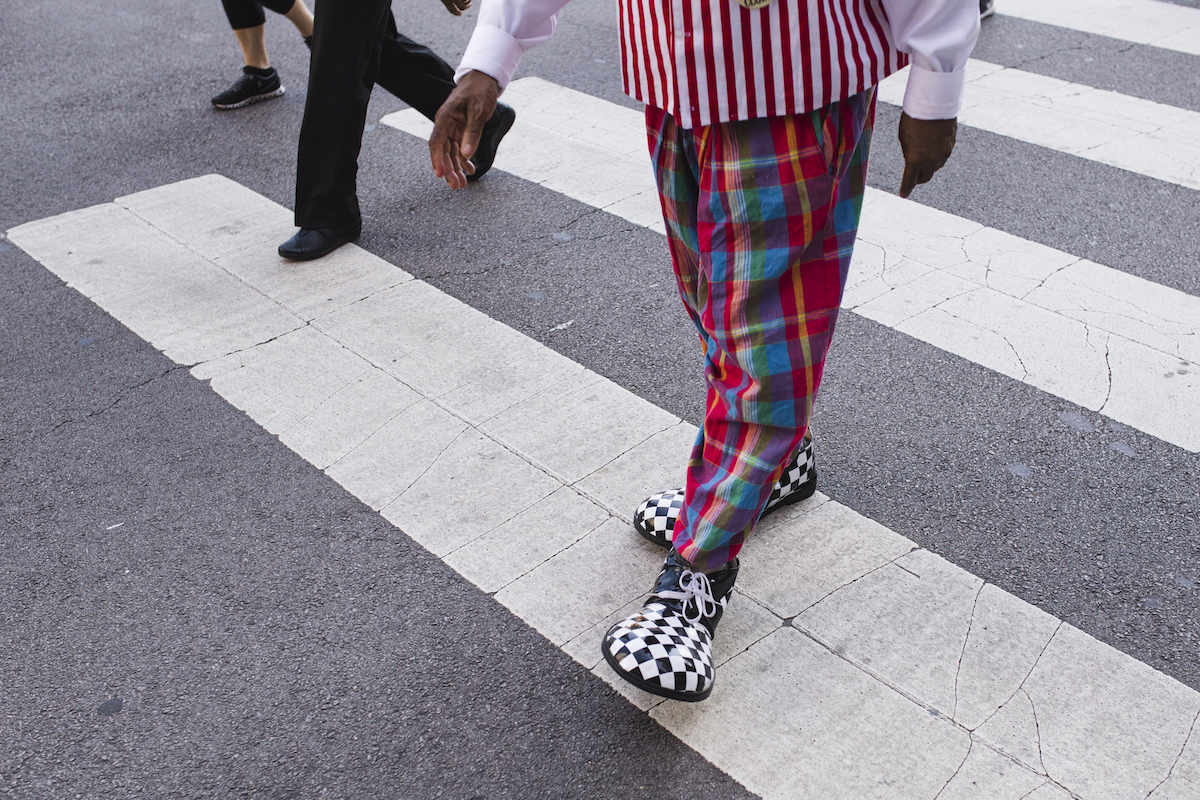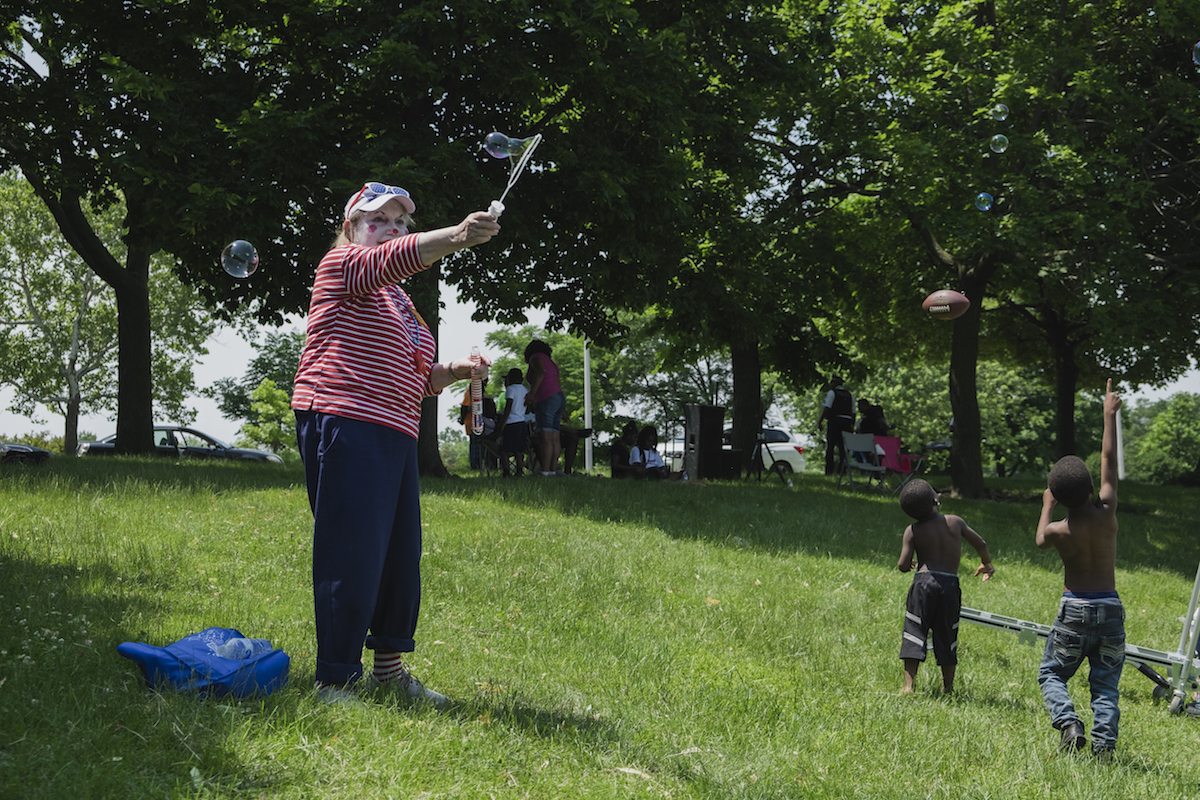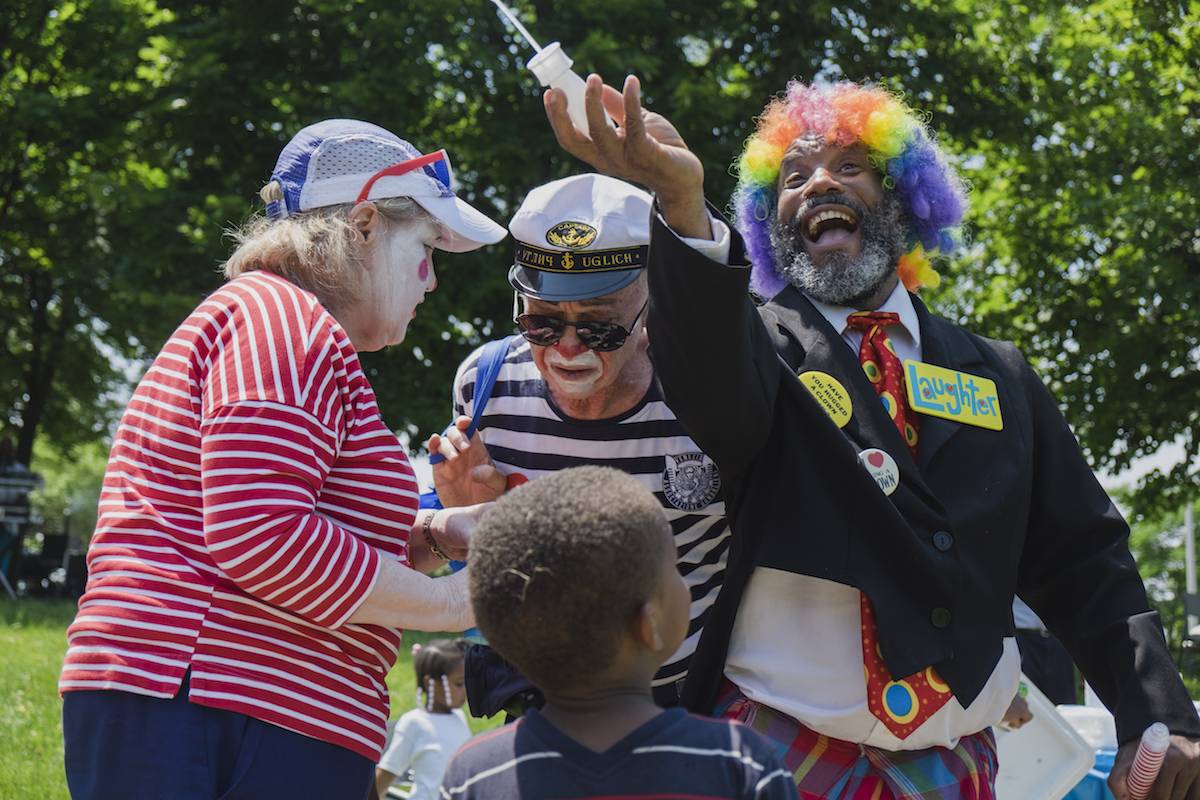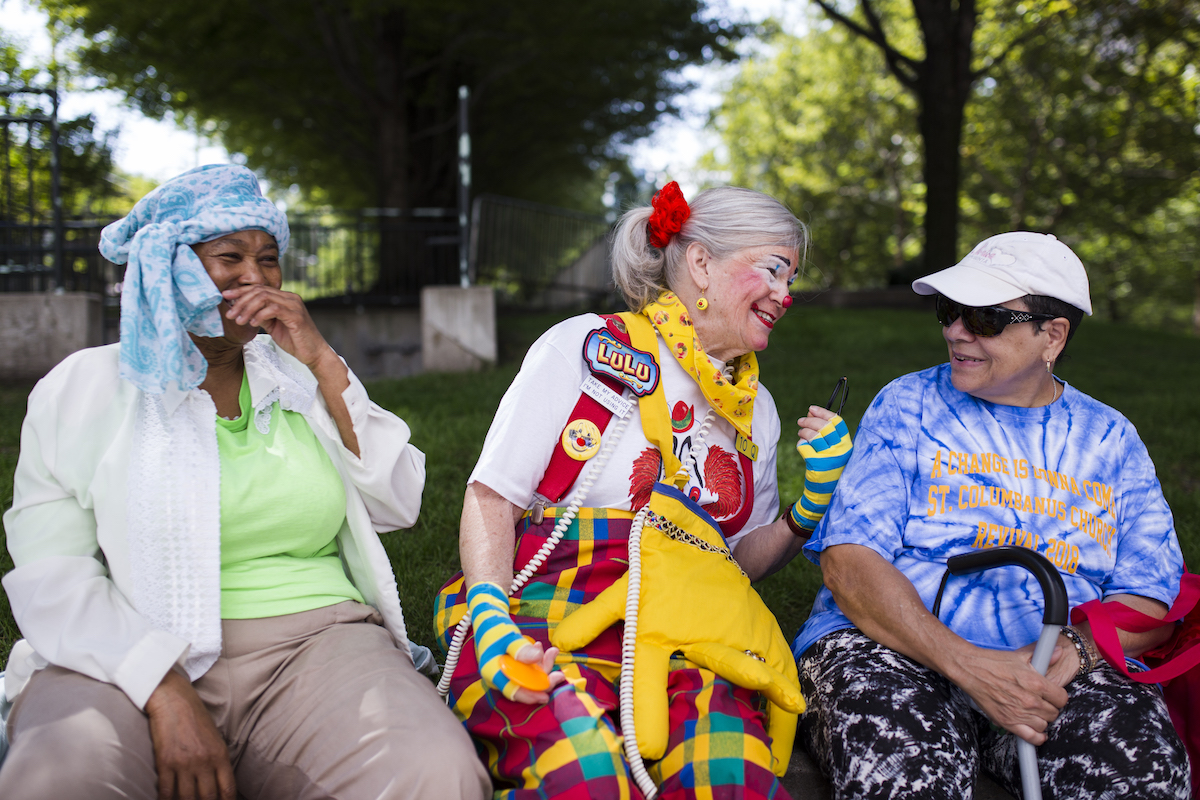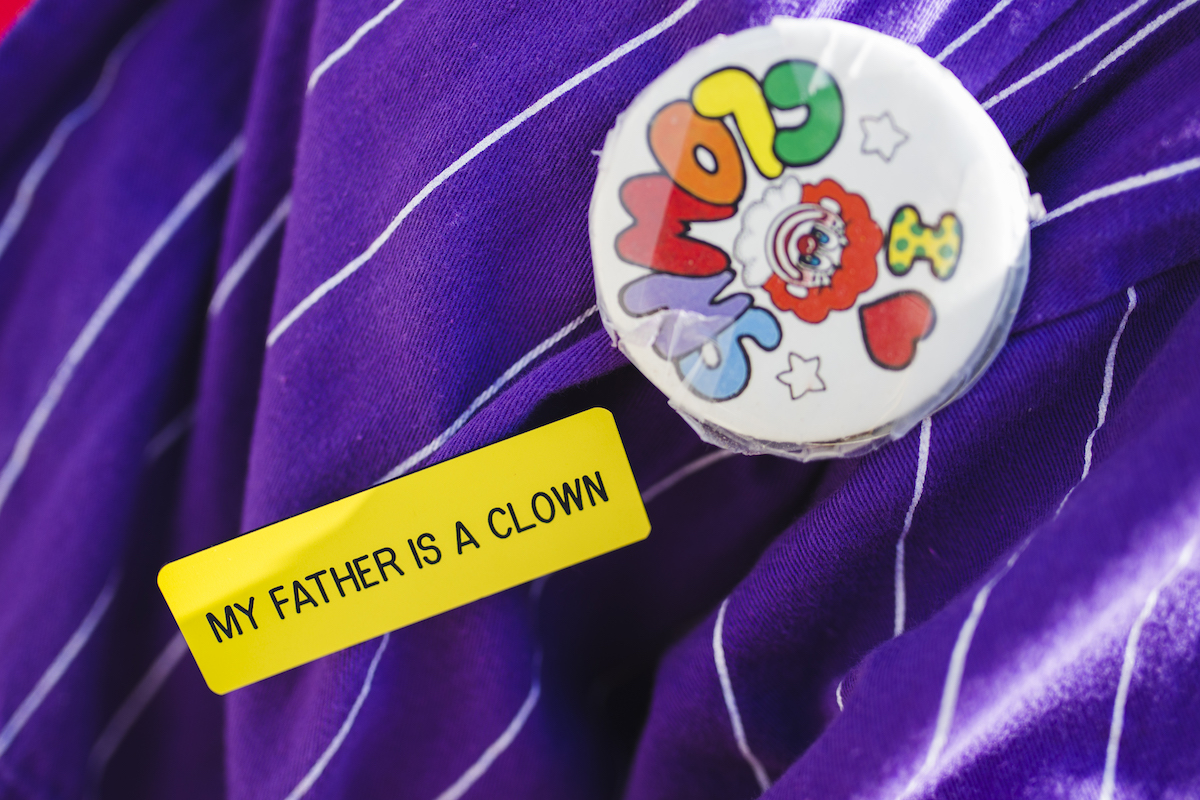Some older adults in Chicago have found the secret to eternal youth: wearing oversized shoes, strapping on red noses, and clowning around.
“We all are like kids at heart,” says Christine Cassello, who's been transforming herself in this way for more than 10 years. “It keeps me active, keeps me thinking young.”
Cassello is part of the Chicago Senior Clown Troupe, a group that meets bimonthly to learn new circus tricks and practice their clowning techniques. The program, run by the city's Department of Family & Support Services, is free to attend and attracts many aspiring elder clowns. But its members do more than just tell jokes, do magic tricks, and act comically. They also perform at nursing homes, hospitals, and senior festivals, where they attempt to spread joy to others their age.
“The concept of this troupe is kind of unique because they’re seniors, but they’re performing for seniors,” says Karen Hoyer, who's taught the class since 2011. She adds that being a clown is all about having an open and giving heart — a quality that is at the core of performing for older adults.
“It's ideal to go into nursing homes where people sometimes don't have a lot of contact with other people. They might feel sort of down in the dumps where they're kind of neglected," she says. "The clown is good at reading the situation and noticing what's needed and drawing that person out.”
And the benefits are mutual. For some members of the Chicago Senior Clown Troupe, clowning, which relies on a lot of movement-based and improv techniques, is a way to stay mentally and physically active. Most members also gain a sense of fulfillment along the way.
“The person that's performing gets so much out of it because it's not like you do a show and all these people applaud for you and you feel that,” says Hoyer. “It's this very subtle reaction, where a person who hasn't been talking or hasn't responded — and you think that they're not even paying attention — they might smile and say thank you. And you realize that the the whole time you actually were touching them.”




